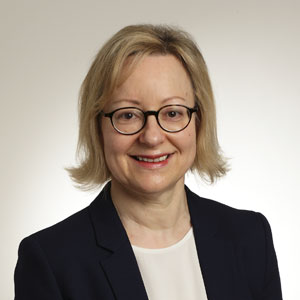Elizabeth Hanson
PhD, Professor, Research Director
Affiliation(s)
Linnaeus University, Dept., Health and Caring Sciences, Kalmar; Swedish Family Care Competence Centre (Nationellt kompetenscentrum anhöriga-Nka)
Title
Informal carers as partners within person-centred long-term care
Abstract
Globally, informal (family) carers provide most of the care to persons with long-term care (LTC) needs. It is estimated that in the European Union alone, more than 52 million people – 14.4% of the adult population aged 18-74 – provide informal care on a weekly basis, with women providing two thirds of all informal care. The estimated economic value of informal care ranges between €320 and €368 billion per year. The COVID-19 pandemic shed a spotlight on carers’ invaluable role, so it would seem self-evident that they are a key partner within person-centred services and systems, alongside the person living with long-term, chronic conditions. Yet, to what extent are carers routinely identified, included, and valued as partners within person-centred policy, research, and practice?
I will illustrate a growing research base of partnership working with families and outline how health and LTC policies increasingly recognize the role played by informal carers, referring to the European Care Strategy. However, I will also explain the existing gap between carer friendly research and policy and their implementation within everyday person-centred care practices. I will conclude by arguing for the need to work at multiple levels to nurture care partnerships and to effectively reach out, support and empower carers.
Bio
Elizabeth leads the ‘Informal Carers, Care and Caring’ research group at Linnaeus University which acts as the research arm of the Swedish Family Care Competence Centre (Nka). Nka is a national centre of excellence on informal (family) care funded by the Swedish Ministry of Health and Social Affairs. Elizabeth acts as expert advisor to the National Board of Health and Welfare Sweden on carers issues. She has a long- standing interest in informal care and over the last twenty-five years Elizabeth has led a variety of national and international projects in partnership with informal carers, patients/service users, health and social care practitioners, decision makers, policy makers and NGOs. The goal being to strengthen the knowledge base and stimulate evidence-based policies and practices for and with carers across the life course. Elizabeth is a board member and prior president of Eurocarers, the European association working for informal carers. She established the Eurocarers Research Working Group whose aim is to feed into the definition of evidence-based policy making on the role and added value of informal carers.







